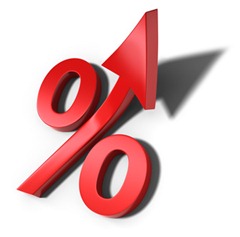 Anyone hoping to save a lot of money and gain a lot of interest needs to consider opening a money market account. Money market accounts are similar to savings accounts but the interest rate is much higher and there are other stipulations as well including the following:
Anyone hoping to save a lot of money and gain a lot of interest needs to consider opening a money market account. Money market accounts are similar to savings accounts but the interest rate is much higher and there are other stipulations as well including the following:
· Higher minimum balance requirements (typically $1,000 deposit is required to open the account).
- 3 to 6 withdrawals per month
- ATM withdrawls are unlimited
- 3 checks can be written per month
- Some banks will offer debit card privileges
One of the great benefits to using a money market account is that you are protected by the FDIC or the NCUA so you do not need to worry about losing money if the bank or credit union does close.
Similar to the way in which a savings account works, money is invested into the money market account in which it will earn interest money. Money market account rates vary based on the lender you choose to work with. Some lenders are hoping to get more investors so they may offer you a higher rate than other banks are currently offering.
Right now, one of the banks offering the highest money market account rates is:
- [mma bank=’Capital One’ alt=’Capital One 1.10% APY ‘]Capital One ~APY~% APY[/mma]
The amount of money you are willing to invest will impact how much you can earn in interest money from the bank or credit union. With a money market account the interest will be compounded daily and paid to your account monthly.
Will the interest rate change if you keep money in the account? Money Market Accounts are unlike CD accounts whereas the interest rate can (and usually will) change. Some banks tend to change their rates on a regular basis. Other banks change their rates less often. If you would prefer to put your money in an account where the interest rate won’t change, a CD account could be a better option for you. Be aware however, that with a CD account that your rate won’t change for the worse, but it also won’t change for the better.
It is important that you maintain your balance for the money market account you choose or you may be charged a fee and be unable to receive the high interest rate. Fees can range from $5 to $10 for every withdrawal that you make on the account that is in excess of the maximum amount you have agreed to each month. The fees can have a large impact on how much money you can make and whether opening a money market account is a worthwhile investment for you.
Always compare fees and services on the account in order to choose an account that will provide you with the highest interest rate. Be aware of how many withdrawals you have made and keep track of your minimum balance.
Each month you will be given a statement that shows detailed information about the money market account including the transactions that were completed that month along with any fees that may be attached to the account. As long as you maintain the minimum balance and you limit the number of transactions, you will earn a great deal of money from your money market account. One final thing to consider is the accessibility you have to your money market account funds. If your reason for opening an money market account is to put your money away where you won’t have access to it, then you may be more interested in a savings account that doesn’t have check writing or debit card capabilities .
RateCatcher.com is here to help you get the best interest rate on your money market account. Use the Money Market Comparison Chart or the Savings Account Comparison Chart to find the best account that’s right for you.
